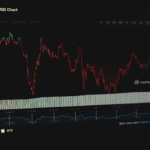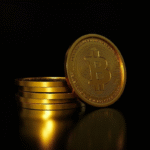
Crypto has always had a unique culture, filled with its own slang, subcultures, and high-stakes drama. Among the loudest and most unpredictable players in this space are the “degenerates”—or as they’re more commonly known, “degens.”
These traders aren’t necessarily reckless fools. They’re often strategic risk-takers who embrace the volatile nature of crypto and DeFi (decentralized finance) in pursuit of massive, often overnight gains.
Degen culture has grown from a fringe identity into a core part of crypto trading. Understanding it offers insight into one of the fastest-moving, highest-risk corners of the financial world.
What Does ‘Degen’ Mean in Crypto?
Short for “degenerate gambler,” the term degen originally carried a negative tone. It was used to describe people who threw money into highly speculative investments with little to no research.
But like many internet-born terms, the crypto community reclaimed it. Today, being a degen is almost a badge of honor—symbolizing fearless participation in experimental tokens, yield farms, and NFTs long before they hit the mainstream.
Degens thrive on Telegram, Discord, and X (formerly Twitter), constantly sharing alpha (early insights), calling new tokens, and hyping projects that could 10x—or crash entirely. Their portfolios might be heavy on memecoins, pre-launch tokens, obscure DeFi protocols, and hyper-yield staking platforms.
Traits of a True Degen
A degen doesn’t wait for regulatory clarity or audited smart contracts. They apes into new protocols, sometimes within minutes of launch, driven by instinct, speed, and vibes. Here are some typical traits:
- Risk tolerance off the charts:Degens play with volatile assets, often holding them for hours—not days.
- Speed over caution:Research is important, but speed often wins in degen trades. By the time most investors catch on, the pump is over.
- FOMO-fueled decision-making:Fear of missing out drives much of degen behavior, leading to overnight market movements based on hype.
- Obsession with the next big thing:Whether it’s memecoins like $PEPE or obscure protocols on Layer 2 chains, degens are constantly chasing the trend.
Why Degen Culture Matters
Far from being mere gamblers, many degens are actually early adopters and builders. They provide liquidity, stress-test protocols, and inject much-needed attention into promising but unknown projects. Often, they’re the reason a token gets listed on a major exchange or gains enough traction to go viral.
Memecoins like Dogecoin, Shiba Inu, and Pepe all started as degen favorites before attracting broader investor interest. Even projects like Uniswap and early NFTs gained momentum thanks to degen enthusiasm.
However, the risks remain enormous. Rug pulls, smart contract bugs, and total collapses are common. This is not a corner of crypto for the faint-hearted—or the under-researched.
Looking to navigate the high-stakes world of crypto with insight—not just hype?
Partner with Kenson Investments to make smarter moves in the market. Whether you’re curious about cutting-edge opportunities or want guidance before diving into the degen scene, our digital asset management consultants can help you start your journey toward more resilient crypto portfolios.
Register now to explore smarter crypto strategies with Kenson Investments.
Disclaimer: The information provided on this page is for educational and informational purposes only and should not be construed as financial advice. Crypto currency assets involve inherent risks, and past performance is not indicative of future results. Always conduct thorough research and consult with a qualified financial advisor before making investment decisions.
“The crypto currency and digital asset space is an emerging asset class that has not yet been regulated by the SEC and US Federal Government. None of the information provided by Kenson LLC should be considered as financial investment advice. Please consult your Registered Financial Advisor for guidance. Kenson LLC does not offer any products regulated by the SEC including, equities, registered securities, ETFs, stocks, bonds, or equivalents”














